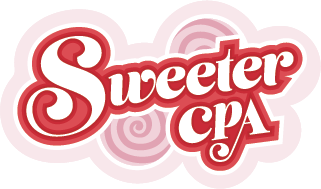Resources:
Why YOU Should Care
If you entertain clients, prospective contacts, or employees you may be able to deduct part of the expense.
In order to be deductible, business entertainment expenses must be ordinary, necessary, and meet one of the following tests:
- Directly-Related Test
- Associated Test
Ordinary and Necessary
First, the expense must be ordinary and necessary. This means that the form of entertainment was
- Common and accepted in your line of business, and
- Helpful and appropriate to gain business.
In general, expenses considered lavish or extravagant are not deductible.
Directly-Related Test
To meet this test, the entertainment must be secondary. The main reason you are spending money on entertainment must be the active conduct of business. You must be able to show that you did engage in business – making sales, discussing contract specifics, etc. – during the entertainment.
You also must have more than a general expectation of receiving business income or some specific business benefit in the future as a direct result of this entertainment. This means that the people invited, the entertainment chosen, and the hosting venue should be carefully selected – you anticipate working with them in the future as a result of partaking in entertainment today.
Associated Test
To meet the associated test, entertainment must be associated with your trade or business or take place directly before or after a substantial business discussion.
What is a “Clear Business Setting”?
While there is no strict definition of what is a clear business setting, the IRS provides a few examples of those that do not. Places with “substantial distractions” do not qualify as clear business settings. The IRS has raised specific concern with the following locations:
- Nightclubs,
- Theatres,
- Sporting events,
- Cocktail parties,
- Hunting or fishing trips,
- Yachts or pleasure boats,
- Vacation resorts, and
- Athletic clubs
Greater detail will be required for events taking place in such venues.



